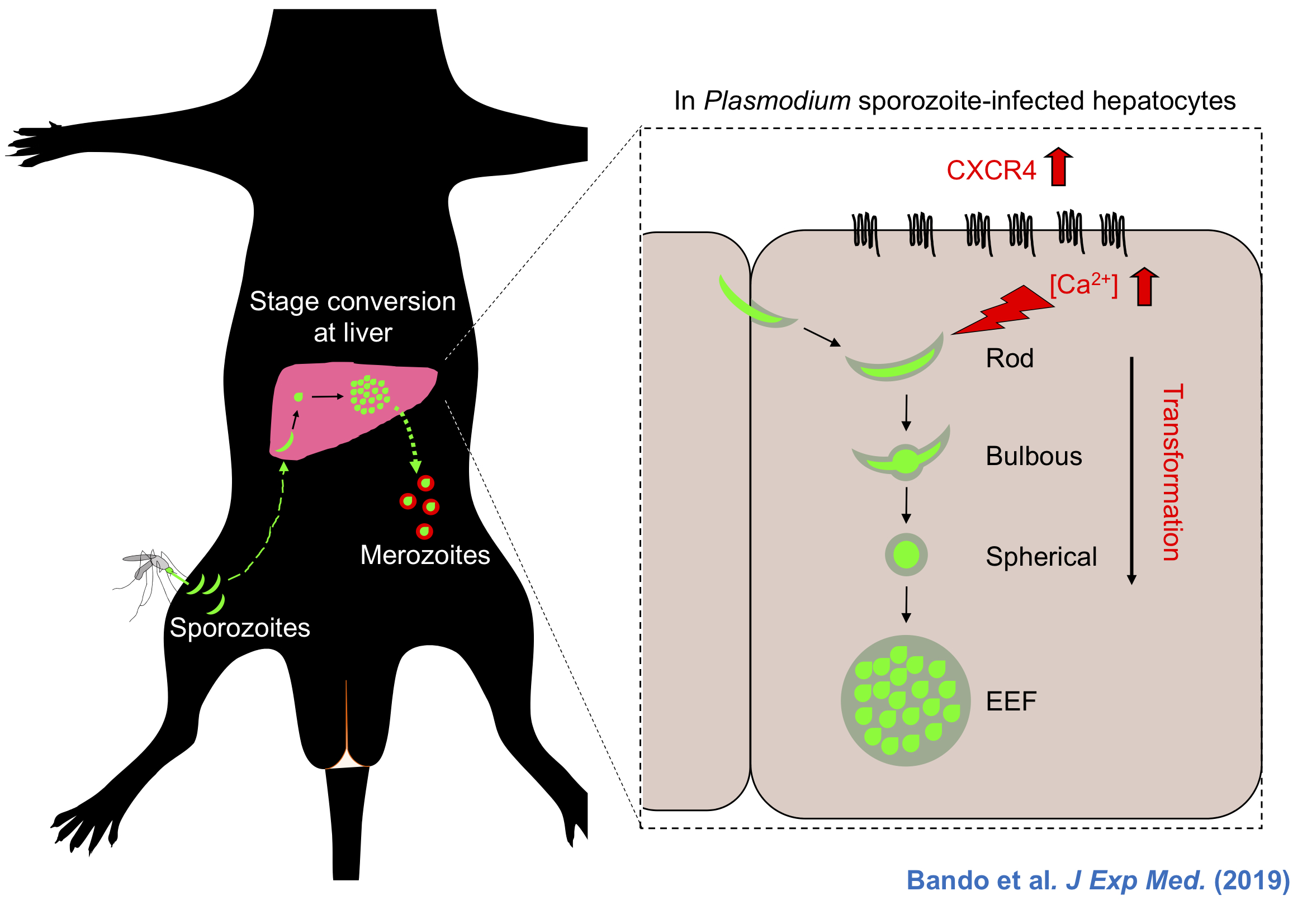CXCR4 regulates Plasmodium development in mouse and human hepatocytes (Yamamoto Lab, in JEM)
The liver stage of the etiological agent of malaria, Plasmodium, is obligatory for successful infection of its various mammalian hosts. Differentiation of the rod-shaped sporozoites of Plasmodium into spherical exoerythrocytic forms (EEFs) via bulbous expansion is essential for parasite development in the liver. However, little is known about the host factors regulating the morphological transformation of Plasmodium sporozoites in this organ. Here, we show that sporozoite differentiation into EEFs in the liver involves protein kinase C -mediated NF-κB activation, which robustly induces the expression of C-X-C chemokine receptor type 4 (CXCR4) in hepatocytes and subsequently elevates intracellular Ca2+ levels, thereby triggering sporozoite transformation into EEFs. Blocking CXCR4 expression by genetic or pharmacological intervention profoundly inhibited the liver stage development of the P. berghei rodent malaria parasite and the human P. falciparum parasite also. Collectively, our experiments show that CXCR4 is a key host factor for Plasmodium development in the liver, and CXCR4 warrants further investigation for malaria prophylaxis.
This article was published in Journal of Experimental Medicine on June 12, 2019.
Title: “CXCR4 regulates Plasmodium development in mouse and human hepatocytes”
Authors: Hironori Bando, Ariel Pradipta, Shiroh Iwanaga, Toru Okamoto, Daisuke Okuzaki, Shun Tanaka, Joel Vega-Rodríguez, Youngae Lee, Ji Su Ma, Naoya Sakaguchi, Akira Soga, Shinya Fukumoto, Miwa Sasai, Yoshiharu Matsuura, Masao Yuda, Marcelo Jacobs-Lorena, Masahiro Yamamoto
Links
- Home
- Achievement
- Research Activities
- CXCR4 regulates Plasmodium development in mouse and human hepatocytes (Yamamoto Lab, in JEM)








